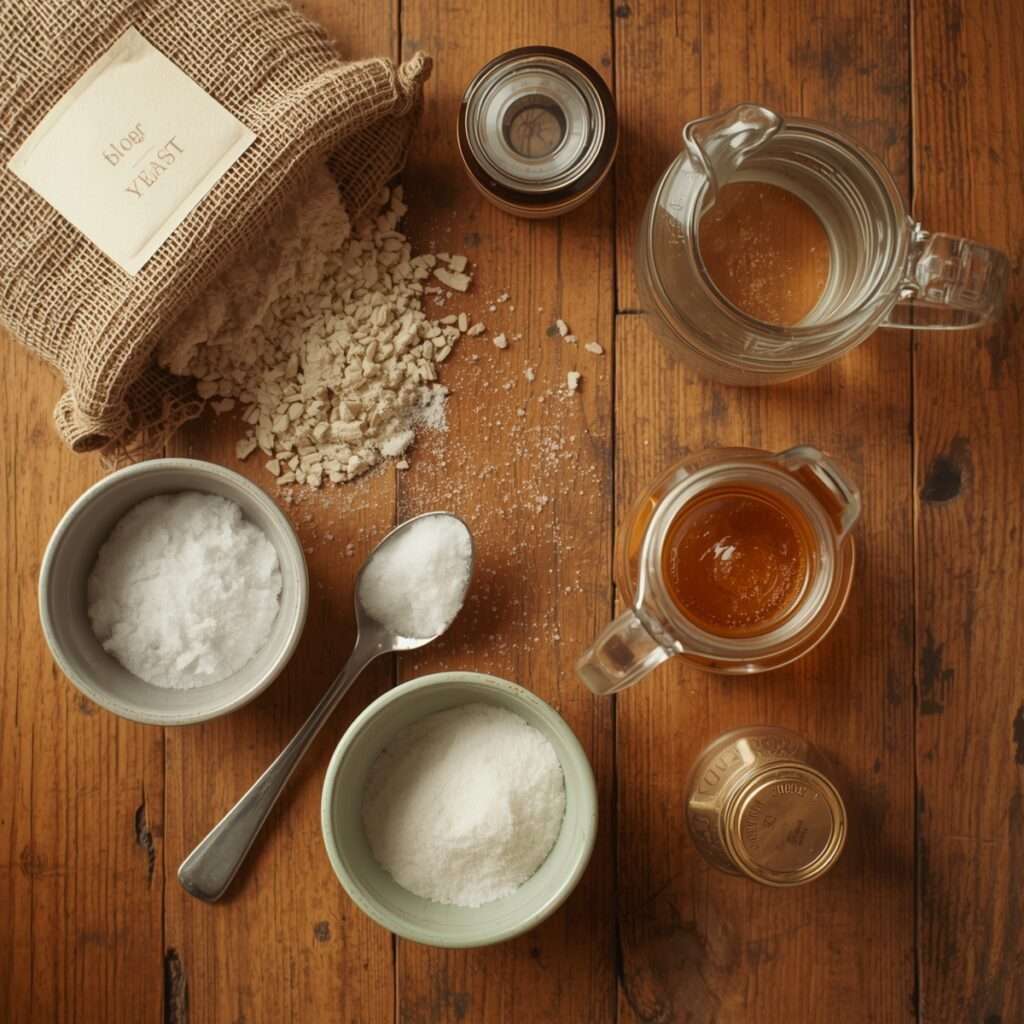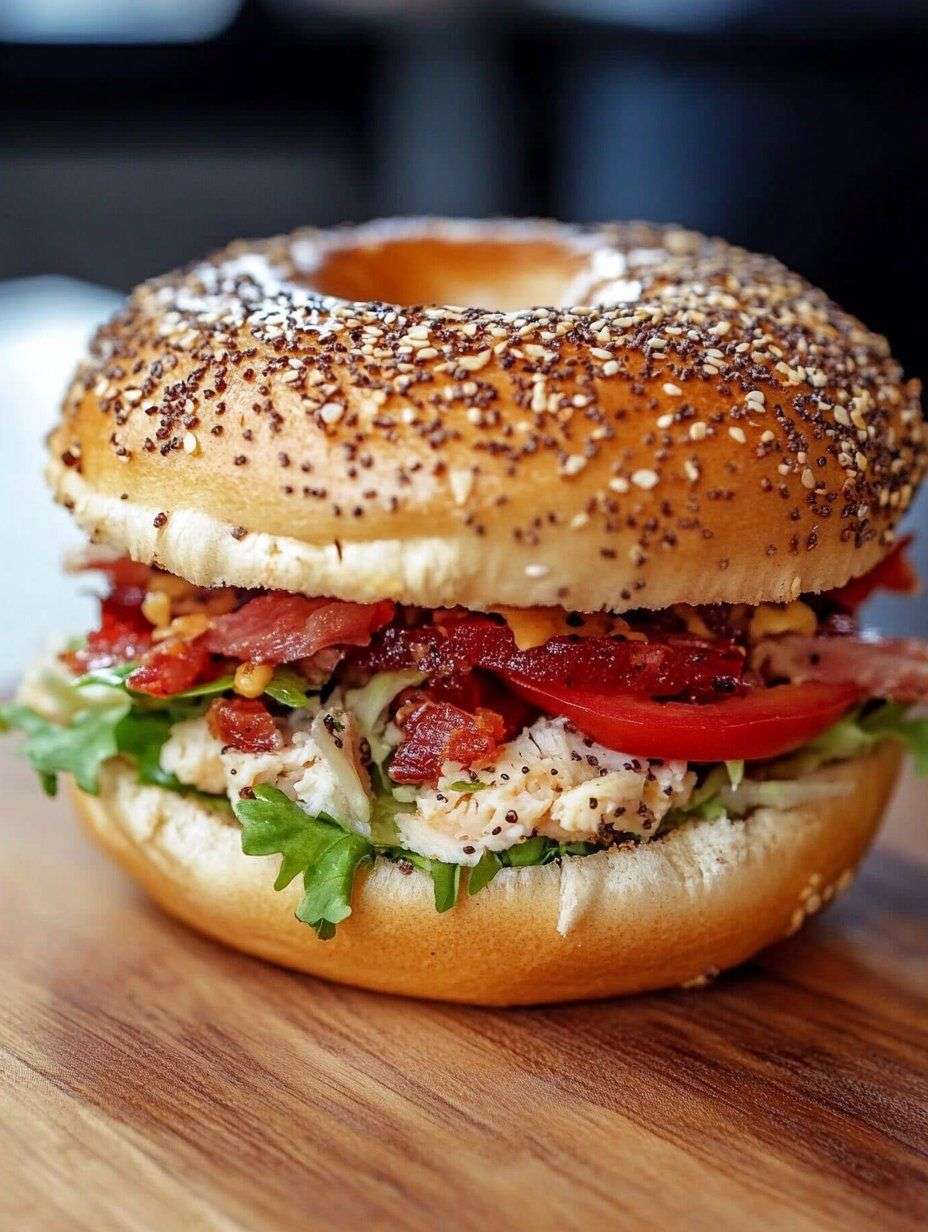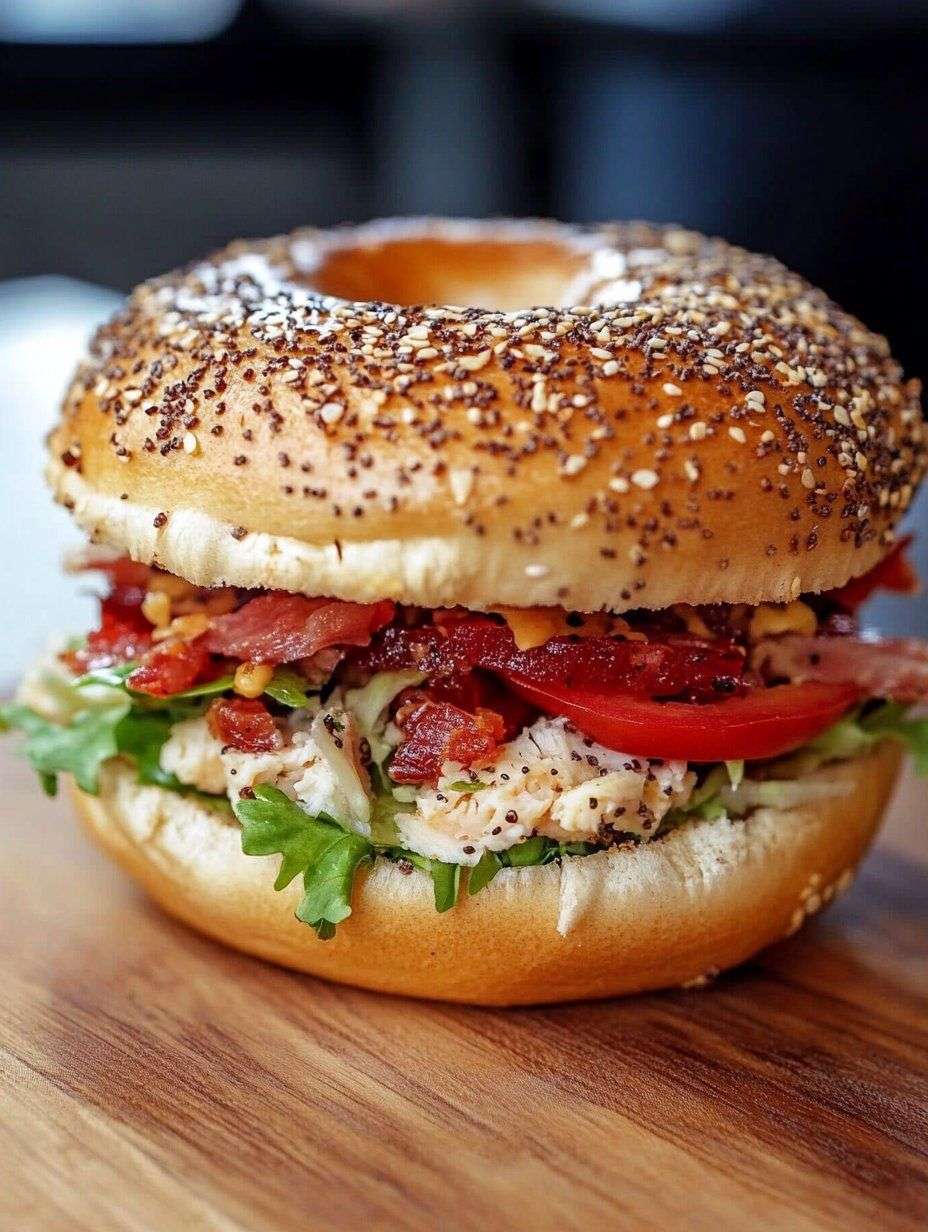Perfect Bagel Recipe You’ll Bake Again and Again
Bagels are a very easy and delicious food to make. I have shared with you a very delicious homemade bagel recipe here.This will help you create a delicious meal right in your kitchen with the right ingredients and baking tools.
If you also want to be a perfect cook, try this now. I have given you everything you need to make this bagel .So you can prepare this dish without any fear. You don’t need to worry about baking or other things. Remember that I am with you every moment.
Why We Adore This Bagel Recipe
This recipe yields genuine New York-type bagels with that chewy feel and shiny crust. Unlike most reduced recipes, these bagels are boiled as well as baked—the key to getting that ideal dense, chewy crumb. They’re very versatile, so you can top them with your choice topping like sesame seeds, poppy seeds, or everything seasoning. Better than anything is nothing like the scent of freshly baked bagels wafting from your kitchen, and the flavor is much better than that of store-bought. And besides, you will have a knowledge of what exactly goes into them—no preservatives or chemical compounds.
Bagel Recipe ingredients

For the Dough:
| 4 cups (500g) bread flour | High protein level yields chewy interior of bagels |
| 1 tablespoon (12g) sugar | Encourages yeast growth and contributes subtle sweetness |
| 2 teaspoons (7g) instant yeast | Sustains dough rise and flavor |
| 1½ teaspoons (9g) salt | Contributes flavor and yeast activity regulation |
| 1½ cups (360ml) warm water | Activates yeast and conditions dough |
For Boiling:
| 8 cups water | Forms the bath for boiling bagels |
| 2 tablespoons (25g) sugar or honey | Contributes shine and slight sweetness to crust |
1 cup = 240ml = 8 fluid ounces
For Topping (Optional):
Sesame seeds, poppy seeds, onion flakes, garlic flakes, or coarse salt – Apply to provide flavor and texture to the crust
Step-by-Step Instructions for Bagel Recipe

- Step 1: Make the Dough
In a big mixing bowl, put the bread flour, sugar, instant yeast, and salt. Use a spoon to mix the dry ingredients together. Add in the warm water (slightly warm to the touch, not hot). Put all of the ingredients together to make a shaggy dough. The dough should be sticky and rough at this stage—don’t worry. - Step 2: Knead the Dough
Turn the dough out onto a lightly floured board. Knead 10 minutes or so, until elastic and smooth. The dough will be very stiff and hard, but not as soft as bread dough. If too sticky, add a tablespoon of flour at a time. After kneading, form it into a ball. - step 3: First Rise
Put the dough ball into a lightly oiled bowl and turn to coat all sides. Cover the bowl with plastic wrap or a damp towel. Let it rise in a warm place for 1 hour, or until it will double its bulk. You know it’s done when you push your finger into it and the depression remains. - Step 4: Shape the Bagels
Press the dough to get rid of the air. Cut into 8 equal pieces (about 110-115g each). To roll out a single bagel, take a piece of dough and roll it into a smooth ball. Press your finger into the center to create a hole and then stretch and turn the dough slowly to form a ring with about a 2-inch hole in the center. The hole will get smaller when they boil and bake, so make it larger than you would think it should be. - Step 5: Second Rise
Put the shaped bagels on a sheet of parchment-lined baking sheet, with room between them. Cover with a damp cloth and let them rest for 10 minutes. The brief resting time causes them to puff slightly. - Step 6: Prepare for Boiling
Let bagels sit. In large wide pot, bring 8 cups of water and 2 tablespoons sugar (or honey) to a boil. Preheat oven to 425°F (220°C). Place a baking sheet lined with parchment paper. - Step 7: Boil the Bagels
When the water is boiling, add 2-3 bagels at a time to the water using the slotted spoon. Both sides must be boiled for 1 minute. The bagels will float to the top—beautiful. Remove them with the slotted spoon, let excess water drip off, and put on ready baking sheet. - Step 8: Add Toppings
If you want toppings, sprinkle them on after boiling when the bagels are still wet. The water will cause the toppings to stick. You may egg wash (1 beaten egg) for added glaze, but it’s not necessary. - Step 9: Bake
Place the bagels in the oven to bake at 20-25 minutes until they are deep golden brown. Flip the pan halfway through to brown evenly. The bagels will be hollow when you thump them on the bottom. - Step 10: Cool and Enjoy
Place the bagels on a wire rack to cool for a minimum of 10 minutes. Cut them up. They are best used the same day that you make them, but they can be frozen for 3 months.

Ingredients
Equipment
Method
- Combine flour, sugar, yeast, and salt in large bowl. Add warm water and stir until it is a ball of dough.
- Knead dough on lightly floured surface 10 minutes until smooth and elastic.
- Put it into oiled bowl, cover, and let it rise 1 hour until doubled.
- Cut dough into 8 pieces. Roll each into a ball, create hole through center, and pull out into a ring.
- Let rested bagels sit 10 minutes on a lined baking sheet.
- Boil water with sugar. Preheat oven to 425°F (220°C).
- Boil bagels 1 minute on each side, then put on a lined baking sheet.
- Add toppings if desired. Bake 20-25 minutes until golden brown.
- Cool on a wire rack for 10 minutes before serving.
Video
Notes
Temperature of water: Warm water should be around 100-110°F (38-43°C). Too hot will kill the yeast.
Hole size matters: Make the center hole bigger than you want it to be—it will narrow up as it boils and bakes.
Boiling step: Don’t skip it! Boiling is what creates the chewy center and shiny crust on bagels.
Storage: Store at room temperature in a closed bag for 2-3 days. Store longer (up to 3 months) in the freezer.
Reheating: Toast frozen bagels straight from the freezer, or thaw first at room temperature.
Flavor variations: Add raisins and cinnamon to the dough to create cinnamon raisin bagels, or try dried herbs for savory flavors.
Success Tips
Use bread flour, not all-purpose flour, for optimal texture
Don’t over-proof the dough or your bagels will be too airy and light
Keep the boiling time precisely 1 minute each side for the best texture
Bagels are best consumed fresh but can be sliced and frozen for quick breakfasts
Pro Tips for Perfect Bagel Recipe
- The Float Test
In order to test if your bagels are well-proofed before boiling the entire batch, test one by submerging it in water. If it floats in 10 seconds, your bagels are well-proofed. If it sinks, let the remaining bagels proof for an additional 5-10 minutes. - Cold Fermentation for Deep Flavor
After forming, chill the bagels overnight (8-12 hours) on a plastic-wrapped lined baking sheet. Place at room temperature for 30 minutes prior to boiling. This yields a richer, more mature flavor. - Ice Bath Trick
Quickly short-dip bagels in an ice bath for 10 seconds when they have been boiled. This halts cooking and provides an extra-shiny, crackly crust. - Use Barley Malt Syrup
Substitute the sugar in the boiling water with barley malt syrup to give the bagels a more traditional New York bagel taste and a richer, glossier crust. - Steam for Extra Chew
Set a pan of water on the bottom oven rack during baking. The steam produces a more uniform chewier interior and crunchier crust. - Score Before Baking
For a professional touch, lightly slice the top of plain bagels using a sharp knife just before baking. This adds a decorative touch. - Accurate Portioning
Portion dough using a kitchen scale with even amounts (110-115g per bagel). This makes all the bagels bake and appear evenly.
Common Problems and Solutions for Bagel Recipe
Problem: Bagels are too dense and hard
Reasons:
Too much kneading of the dough
Dough needs insufficient water
Over-boiling (over 2 minutes total)
Solutions
Knead only to smooth and elastic, 10 minutes
Let dough be slightly tacky before first rise
Roll exactly 1 minute on each side when boiling
Problem: Bagels are too light and bread-like
Reasons:
Dough too wet or soft
Over-proofing in rise times
Using all-purpose flour instead of bread flour
Solutions:
Bagel dough should be hard and firm, not soft
Watch the dough when rising—just double, not triple
Always use bread flour for good protein and texture
Problem: Holes close up when baking
Causes:
Holes made too small initially
Dough over-proofed before boiling
Solutions:
Make holes approximately 2 inches in diameter—much bigger than appears to be necessary
Shape bagels and boil within 10-15 minutes to keep from over-proofing
Problem: Bagels pale and will not brown
Causes:
Oven temperature set too low
Insufficient sugar in water used to boil
Bagels under-proofed
Solutions:
Make sure oven is well preheated to 425°F
Add all 2 tablespoons of sugar or honey into boiling water
Float test to properly proof before boiling







